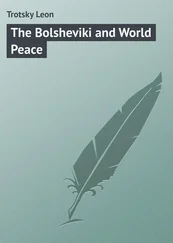Tan, Chade-Meng - Search Inside Yourself - The Unexpected Path to Achieving Success, Happiness (and World Peace)
Здесь есть возможность читать онлайн «Tan, Chade-Meng - Search Inside Yourself - The Unexpected Path to Achieving Success, Happiness (and World Peace)» — ознакомительный отрывок электронной книги совершенно бесплатно, а после прочтения отрывка купить полную версию. В некоторых случаях можно слушать аудио, скачать через торрент в формате fb2 и присутствует краткое содержание. Год выпуска: 2012, Издательство: Harper Collins, Inc., Жанр: Старинная литература, на английском языке. Описание произведения, (предисловие) а так же отзывы посетителей доступны на портале библиотеки ЛибКат.
- Название:Search Inside Yourself: The Unexpected Path to Achieving Success, Happiness (and World Peace)
- Автор:
- Издательство:Harper Collins, Inc.
- Жанр:
- Год:2012
- ISBN:нет данных
- Рейтинг книги:4 / 5. Голосов: 1
-
Избранное:Добавить в избранное
- Отзывы:
-
Ваша оценка:
- 80
- 1
- 2
- 3
- 4
- 5
Search Inside Yourself: The Unexpected Path to Achieving Success, Happiness (and World Peace): краткое содержание, описание и аннотация
Предлагаем к чтению аннотацию, описание, краткое содержание или предисловие (зависит от того, что написал сам автор книги «Search Inside Yourself: The Unexpected Path to Achieving Success, Happiness (and World Peace)»). Если вы не нашли необходимую информацию о книге — напишите в комментариях, мы постараемся отыскать её.
Search Inside Yourself: The Unexpected Path to Achieving Success, Happiness (and World Peace) — читать онлайн ознакомительный отрывок
Ниже представлен текст книги, разбитый по страницам. Система сохранения места последней прочитанной страницы, позволяет с удобством читать онлайн бесплатно книгу «Search Inside Yourself: The Unexpected Path to Achieving Success, Happiness (and World Peace)», без необходимости каждый раз заново искать на чём Вы остановились. Поставьте закладку, и сможете в любой момент перейти на страницу, на которой закончили чтение.
Интервал:
Закладка:
I am grateful to the Search Inside Yourself team for the work that directly inspired this book. I want to thank Daniel Goleman again, whose active support made Search Inside Yourself possible. I want to thank the Search Inside Yourself instructors for not only creating the curriculum but also being my teachers. They are Norman Fischer, Mirabai Bush, Marc Lesser, Yvonne Ginsberg, and Philippe Goldin, every one of whom taught me something valuable. I thank the core Search Inside Yourself team for doing the actual work of making it happen: Hongjun Zhu, Joel Finkelstein, David Lapedis, Rachel Kay, Albert Hwang, Monika Broecker, Jenny Lykken, Terry Okamoto, and Sara McCleskey, and many others who have volunteered their help in some way. Albert and Jenny deserve special mention for creating some parts of the curriculum and helping us teach some classes even though they were not formally on the instructors team; they are both talented far beyond their years. I would also like to thank the early bosses of GoogleEDU (known back then as Google University) for approving Search Inside Yourself, especially to Peter Allen for being our first “patron saint” as the then director of Google University and, his manager, Paul Russell for giving us the final approval and his subsequent unrelenting support. Paul modestly jokes that his biggest contribution to Search Inside Yourself is “not saying no.” I also want to thank other managers at Google for their vital support at various times: Jun Liu, Erica Fox, Stephan Thoma, Evan Wittenberg, and Karen May. I want to especially thank Karen not just for being the best manager I have ever had but also for being an example of what a highly empathetic manager is like. Karen is the most empathetic person I have ever worked with; I call her the Queen of Empathy. She is one of those rare senior managers who is widely beloved by her people.
I am thankful to all the highly talented people who, in their moments of weakness, agreed to work with me on this book. Chief among them is Colin Goh, my friend, advisor, and illustrator. Colin is an award-winning cartoonist and filmmaker with a law degree—what’s not to love about that? Christina Marini was my talented and tireless research assistant—if any of you ever need to employ anybody, you’ll be lucky to have her. Jill Stracko advised me on various aspects of writing and gave me her time to edit various iterations of early drafts. Jill used to head the White House writing staff, so I feel really honored to be on the receiving end of her generosity and wisdom. My agent, Stephanie Tade, was a rare find. When I advertised for an agent, I set an unreasonably high bar for who I wanted to work with. Among many requirements, I wanted somebody with a solid meditation practice who is driven primarily by compassion, is highly successful at what she does, and yet is open to doing things in entirely unconventional ways. I didn’t expect her to even exist, but I found her within two weeks. Thanks to Jim Gimian and Bob Stahl for helping me find her. I have learned a lot from my editor, Gideon Weil, and have really enjoyed working with him and everyone else at HarperOne, including the publisher, Mark Tauber. I want to thank Philippe Goldin and Thomas Lewis for giving me valuable scientific advice. Last but not least, I am thankful to friends who took the time to read through my early drafts in their entirety and have given me many useful suggestions, including HueAnh Nguyen, Rich Hua, Olivia Fox, Audrey Tan, Tom Oliver, Kian-Jin Jek, Tomithy Too, and Kathrin O’Sullivan.
I am deeply thankful to my parents for keeping me nourished and sheltered (no small feat during my early Asian childhood) and for keeping me out of trouble for all my formative years. I am also deeply thankful to my lovely wife, Cindy, for (still) keeping me. Last but not least, I am grateful to my daughter, Angel, for being the greatest love of my life and for loving me back.
For those of you whom I owe a lot to, let me repay you partially with this poem, mostly because it costs me nothing:
Let’s go , vamanos.
Beyond the limited mind .
Everybody let’s go .
Welcome to enlightenment!
(In original Sanskrit: Gate, gate. Paragate. Parasamgate. Bodhi svaha ! )
Notes
Introduction:
Searching Inside Yourself
1. The full story on the adventures of Matthieu Ricard in the lab is available in the first chapter of the book Destructive Emotions: How Can We Overcome Them?: A Scientific Dialogue with the Dalai Lama , by Daniel Goleman (New York: Random House, 2004). It is also available as a story titled “The Lama in the Lab” in the March 2003 issue of Shambhala Sun . Highly recommended read.
2. Richard Davidson and William Irwin, “The Functional Neuroanatomy of Emotion and Affective Style,” Trends in Cognitive Sciences 3, no. 1 (1999): 11–21. If you would like to learn more about the scientific research on that topic, the references in this more recent paper are also very useful: Richard Davidson, Alexander Shackman, and Jeffrey Maxwell, “Asymmetries in Face and Brain Related to Emotion,” Trends in Cognitive Sciences 8, no. 9 (2004): 389–391.
Chapter One:
Even an Engineer Can Thrive on Emotional Intelligence
1. Peter Salovey and John D. Mayer, “Emotional Intelligence,” Imagination, Cognition, and Personality 9, no. 3 (1990): 185–211.
2. This connection was first suggested to me by a short YouTube video titled “Scrooge and his Emotional Intelligence,” http://siybook.com/v/scrooge.
3. Daniel Goleman, Working with Emotional Intelligence (New York: Bantam, 1998). The said studies are described in Chapter 3 and Appendix 2.
4. Martin E. Seligman, Learned Optimism: How to Change Your Mind and Your Life (New York: Vintage Books, 1990).
5. Daniel Goleman, “Social Intelligence: The New Science of Human Relationships” (lecture, Authors@Google, Mountain View, CA, August 3, 2007), http://siybook.com/v/gtalk_dgoleman.
6. Goleman, Working with Emotional Intelligence . The data analysis is described in Chapter 8 and Appendix 2.
7. Wallace Bachman, “Nice Guys Finish First: A SYMLOG Analysis of U.S. Naval Commands,” in The SYMLOG Practitioner , ed. Polley, Hare, and Stone (New York: Praeger, 1988): 133–153.
8. Matthieu Ricard, Happiness: A Guide to Developing Life’s Most Important Skill (New York: Little, Brown and Company, 2003).
9. Katherine Woollett, Hugo J. Spiers, and Eleanor A. Maguire, “Talent in the Taxi: A Model System for Exploring Expertise,” Philosophical Transactions of the Royal Society 8 364, no. 1522 (2009): 1407–1416. There is also a BBC News article, available at: http://siybook.com/a/taxibrain.
10. Unpublished data. Philippe Goldin, Ph.D. “Cognitive Reappraisal of Emotion after Cognitive-Behavioral Therapy for Social Anxiety Disorder.” Presented at the annual conference of the Association for Behavioral and Cognitive Therapies, Orlando, Fl, November 2008.
11. R. Christopher deCharms, et al., “Control Over Brain Activation and Pain Learned by Using Real-Time Functional MRI,” Proceedings of the National Academy of Sciences of the United States of America 102, no. 51 (2005): 18626–18631. Also see: R. Christopher deCharms, “Reading and Controlling Human Brain Activation Using Real-Time Functional Magnetic Resonance Imaging,” Trends in Cognitive Sciences 11, no. 11 (2007): 473–481.
12. Jon Kabat-Zinn, Wherever You Go, There You Are: Mindfulness Meditation in Everyday Life (New York: Hyperion, 1994).
13. Thich Nhat Hanh, The Miracle of Mindfulness: An Introduction to the Practice of Meditation (Boston: Beacon Press, 1999).
Читать дальшеИнтервал:
Закладка:
Похожие книги на «Search Inside Yourself: The Unexpected Path to Achieving Success, Happiness (and World Peace)»
Представляем Вашему вниманию похожие книги на «Search Inside Yourself: The Unexpected Path to Achieving Success, Happiness (and World Peace)» списком для выбора. Мы отобрали схожую по названию и смыслу литературу в надежде предоставить читателям больше вариантов отыскать новые, интересные, ещё непрочитанные произведения.
Обсуждение, отзывы о книге «Search Inside Yourself: The Unexpected Path to Achieving Success, Happiness (and World Peace)» и просто собственные мнения читателей. Оставьте ваши комментарии, напишите, что Вы думаете о произведении, его смысле или главных героях. Укажите что конкретно понравилось, а что нет, и почему Вы так считаете.







![Chade-Meng Tan - Search Inside Yourself - Increase Productivity, Creativity and Happiness [ePub edition]](/books/703803/chade-thumb.webp)



